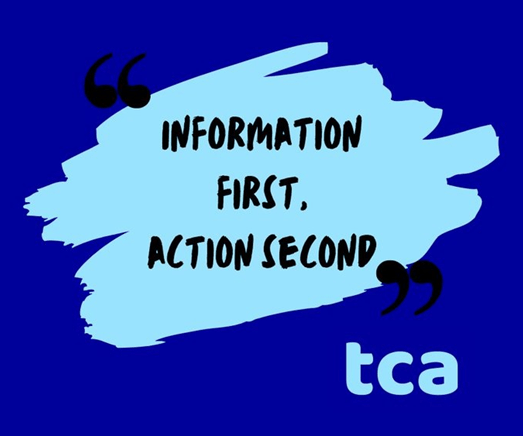Put simply the answer is yes, however not all ownership contracts are legally challengeable. In this article we will look at those that will and those that won’t plus we will look at how to avoid being a victim of scam companies.
Quite often your first knowledge that you may have a claim against your timeshare provider begins with a cold call; however by law companies can contact you if they believe you have a legitimate interest which means you’re being contacted about a product or service which is genuinely appropriate for you. If during this call talk about misselling is mentioned this may be difficult to progress, why should this be? The first problem is that the majority of misselling takes place at the time of sale and is invariably verbal, in other words what you were told during the sales presentation was never included in the contract. When challenging a developer or resort they will vehemently deny any accusation and remind you that if it’s not in the contract then it doesn’t exist.
Even if you feel you were missold, the opportunity to challenge offers a small window. Ask yourself, if you have been an owner for a number of years, how is it that you didn’t find out that what you were promised didn’t match what you own and complain at the appropriate time? This purely refers to the actual ownership; if you took finance to purchase then this may be a different matter which we will investigate later.

Protection offered by law
Whilst it’s fair to say that in virtually every timeshare market, whether in Europe or further afield, there are laws that offer a modicum of protection to consumers, however these are predominately aimed at the point of sale and therefore offer little or no right to reply a number of years down the road. The odd one out is Spain, Spanish timeshare has laws which are both strong and aimed at consumer protection, again more on this later.
Europe as a collective has a timeshare directive which was issued in 2008, most member states adopted the directive by 2012; however this directive, whilst welcome, stopped way short of the protection it could have offered. Despite Brexit, the UK is still party to this directive.
The USA is somewhat different as there is no federal law but each state has its own laws, for the most part again from the states we have investigated the laws fall short of solid consumer protection.

Specifically Spain
Much has been written about law 42/98 enacted in Spain on 5th January 1999, and successor law 42/12 in essence these laws are without doubt the most significant timeshare consumer oriented legislation ever enacted. Although a long and complex law, in a nutshell the following points are the most significant when understanding if your Spanish contract is illegal:
- Your contract length was more than 50 years or in perpetuity.
- You contracted a floating time or points backed timeshare.
- You paid any monies within the 14 day cooling off period.
- Your timeshare was not registered with the land registry.
- You were not provided with the exact details of the occupancy rights.
If any timeshare contact issued after January 1999 falls foul of any of the above then it may be legally challenged through the Spanish courts. An outline of the court procedure may be found here. Naturally if you are in possession of, or believe your contract may be illegal, then specialist legal representation by a qualified Spanish lawyer will be necessary, this is definitely not a do it yourself project.

Elsewhere
In pure legislative terms there is nowhere else on the planet to mount claims. There may be opportunities to take legal action but this will be on an individual basis without clear legislation backing up such a case. Certainly in the USA various individual cases have been presented.
The American law firm of Stoddard Warnick & Albright filed a billion dollar lawsuit against Diamond Resorts International January 29, 2017. The lawsuit alleged Diamond Resorts (DRI) ensnared thousands of elderly consumers in its deceptive and fraudulent scheme to sell points-based timeshare memberships. This case was presented because of consumer protection law and not specifically American timeshare law.

Finance claims
Of late there has been mounting pressure on the Financial Conduct Authority (FCA) to examine loans provided by UK lenders for timeshare purchase. The recent case surrounding loans granted by Barclays Partner Finance for the purchase of timeshare with Azure in Malta has raised questions as to the validity of many loans granted for the purpose of buying timeshare.
Financial services legislation dictates a set of checks and balances that are mandatory for both intermediaries and lending institutions, in many cases the law was not followed resulting in a legal challenge, in the Azure case mentioned above this will result in a cost to Barclays in excess of £48m to correct, with a further £181m set aside. Many experts and commentators believe this is only the tip of the iceberg with other lenders and their practices coming under the microscope.
Naturally not every finance agreement may be challenged, however if you have timeshare related finance it at least begs the question “Is my contract and the way it was transacted legal?”

Expert help
Any claims relating to timeshare are not as simple as taking your neighbour to court for overhanging branches in your garden. Taking on a multi million pound institutions be it a timeshare developer or a bank is, as we said earlier, is not a do it yourself operation. Taking the first step is ascertaining whether or not you have the right to reply then secondly engaging the right experts to act on your behalf. At TCA we maintain a listing system and have details of companies we know can assist, this is what we call our white list. On the other side is a comprehensive list of those companies who we would strongly state should be avoided. Unfortunately, the peripheral of the timeshare industry has spawned a plethora of unscrupulous companies; many of whom promise the earth and deliver nothing.
Initially please contact us to discuss your particular case, we will then be in a position to advise, and if necessary can recommend a suitable specialist company to assist.
For more information regarding this article or assistance in any other timeshare related issues please contact the TCA on 01908 881058 or email: info@TimeshareConsumerAssociation.org.uk
